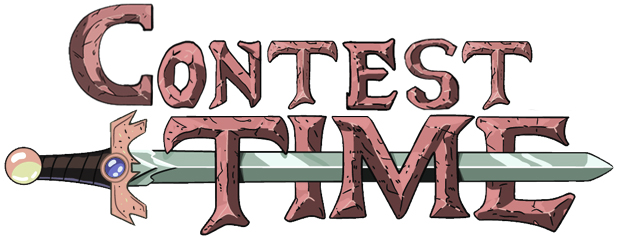 In my last post, I talked about the fact that my own liminal position as someone working concurrently within several fields—namely, literary studies, game studies, and women’s studies—has caused me to think a lot about how it is I might make use of these fields’ overlapping and similar concerns to establish a methodology that allows me to work effectively from within this hybridized space. Indeed, as someone who is operating especially within the field of literary studies and who is also interested in studying video games, I find myself especially concerned with the tensions that occur in this space, and this idea of the tensions that result from the intersection of the humanities and digital, new media environments is one with which I specifically grapple, for I find myself working to address how and why video games, as a contemporary digital narrative form, might be incorporated into the research and pedagogy of the field of literary studies. In other words, I find myself, through my research, seeking to answer one prevalent question—what, exactly, is the significance of video games for contemporary literary culture?
In my last post, I talked about the fact that my own liminal position as someone working concurrently within several fields—namely, literary studies, game studies, and women’s studies—has caused me to think a lot about how it is I might make use of these fields’ overlapping and similar concerns to establish a methodology that allows me to work effectively from within this hybridized space. Indeed, as someone who is operating especially within the field of literary studies and who is also interested in studying video games, I find myself especially concerned with the tensions that occur in this space, and this idea of the tensions that result from the intersection of the humanities and digital, new media environments is one with which I specifically grapple, for I find myself working to address how and why video games, as a contemporary digital narrative form, might be incorporated into the research and pedagogy of the field of literary studies. In other words, I find myself, through my research, seeking to answer one prevalent question—what, exactly, is the significance of video games for contemporary literary culture?
How, exactly, do I argue for the validity and legitimacy of the examination of video games through the lens of literary studies?
To me, it seems, such a lens might allow us to more fully realize how video games converse with other new media forms and how it is they converse with other means of storytelling. And such an understanding of games can allow us to understand how it is that games expand the way we interact with and engage with narrative structures and with the stories we tell. But what I tend to struggle with is how it is I can convince others working within the field of literary studies of all this, how it is I can convince others that, by considering the manner in which play and narrative intersect in video games and the manner in which such an intersection might influence literary studies research and pedagogy, we can come to understand the significant ways that games expand the way we think about how it is we can make meaning through the construction of (playful) narrative structures.
In my post last week I talked a bit about games and play and the manner in which play has come to be defined by those like Huizinga and Sicart. But play is not the only component inherent in what makes a game a game, for games are narratively constructed as well. Indeed, narrative is a form of signification, a form of representing who we are, a form of making sense of the world and our places in it. But storytelling is also a means of opening ourselves up to other possibilities for existence—it’s a means of opening ourselves up to the possibility for change. And video games, as texts that incorporate elements of both narrative and play exemplify the manner in which this opening of possibilities can be made manifest through the intersection of the two. And the risk in not engaging with games’ narrativity limits us in our understanding of the various ways games, other media forms, and other modes of storytelling all allow us to experience narrativity and play in different ways. Games, then, allow us to further redefine the boundaries of narrative and play, of storytelling and gameplaying.
 Just as games redefine these boundaries, so too might the analysis of games as texts that incorporate both play and narrative redefine the boundaries of the field of literary studies. And this is because games are not simply the domain of one field but rather are viable for interdisciplinary consideration due to their incorporation of both play and story, and this incorporation results in the fact that we don’t just need to be asking how games make use of narrative but how they use narrative in ways other media and literary forms do not. And by interrogating games in this way, by making sure to use games, instead, to reimagine, reframe, and expand our understanding of storytelling, we can then begin to open ourselves to more diverse experiences.
Just as games redefine these boundaries, so too might the analysis of games as texts that incorporate both play and narrative redefine the boundaries of the field of literary studies. And this is because games are not simply the domain of one field but rather are viable for interdisciplinary consideration due to their incorporation of both play and story, and this incorporation results in the fact that we don’t just need to be asking how games make use of narrative but how they use narrative in ways other media and literary forms do not. And by interrogating games in this way, by making sure to use games, instead, to reimagine, reframe, and expand our understanding of storytelling, we can then begin to open ourselves to more diverse experiences.
But why are these diverse experiences important for academics in literary studies? Why should those of us entrenched in this field turn to the digital sphere?
Perhaps one reason is because it expands our understanding of everything “literature” can encompass. In other words, in order to navigate the new literary terrain of our world today, a shift in the field is needed—a shift from dismissing games to instead embracing them as texts that affect and are affected by contemporary literary culture. Because it is through video games’ ability to situate meaning, to embody experiences, to solve problems, to reflect on imagined worlds and social relationships and identities and contemporary society that games reveal the important role they might play for the field of literary studies; by putting these systems of representation and meaning-making in conversation with other textual forms, we can begin to understand how video games both draw from these other forms to tell their stories and tell stories in different, exciting ways. Indeed, our engagement with video games as ludic stories can allow us to more fully engage with a variety of media texts, and in order to truly do so, we must make sure not to abandon the video game because it can expand our understanding of all the different ways we make meaning through the stories we tell.
![Book_Gamepad [Converted]](http://www.nymgamer.com/wp-content/uploads/2016/01/Fotolia_91564682_Subscription_Monthly_M-300x225.jpg) So it seems to me, ultimately, that we must enact change in the research-oriented and pedagogical frameworks of the field of literary studies. We must embark on a wider cultural shift within academia, and while this is, to be sure, no small task, it is an important one. I do like to think, though, that our expectations and our infrastructure are already beginning to shift and beginning to allow us to see all the possibilities that video games have to offer for the field of literature. Change is beginning to happen. But in order to fully realize this shift in what gets to count as a storytelling medium that is valid for academic study, we need to begin gaming the literary—we need to fully incorporate video games into our research and our pedagogy so that we no longer limit ourselves to considering what literature has been or what it is but what literature can become. Because our storytelling forms are evolving, which means that it is important for our study of these forms to evolve alongside them.
So it seems to me, ultimately, that we must enact change in the research-oriented and pedagogical frameworks of the field of literary studies. We must embark on a wider cultural shift within academia, and while this is, to be sure, no small task, it is an important one. I do like to think, though, that our expectations and our infrastructure are already beginning to shift and beginning to allow us to see all the possibilities that video games have to offer for the field of literature. Change is beginning to happen. But in order to fully realize this shift in what gets to count as a storytelling medium that is valid for academic study, we need to begin gaming the literary—we need to fully incorporate video games into our research and our pedagogy so that we no longer limit ourselves to considering what literature has been or what it is but what literature can become. Because our storytelling forms are evolving, which means that it is important for our study of these forms to evolve alongside them.





One thought on “Gaming the Literary: On Video Games and Literature”
I really appreciate that formulation of your thoughts on the topic. indeed it really motivates me since it’s the most interesting point in games for me at the moment. when i read “Playing in the dark” by Toni Morrison a year ago i already started to think about some analysis and lecture like that on games and its culture, not as specific as, more kind of.
I wonder if you have any tips/hints/links to media concerning the same topic since you wrote at the end you already feel a shift. could you share some links if so?
On the other side i’m in the middle of organising a festival about games with a critical and alternative approach. it will be in may this year and we will go public in a few days. maybe you would be interested in giving a talk on that topic? we are going to publish a “call for entries” paper with the release of you social media, so is there any way beside facebook to stay in contact with you?